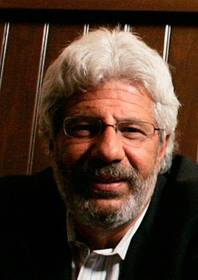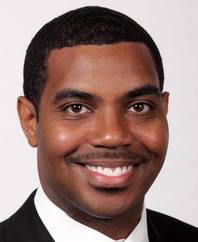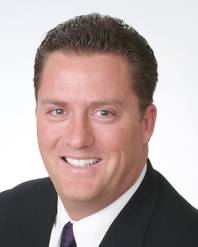Saturday, April 30, 2011 | 2:05 a.m.

Billy Vassiliadis

Steven Horsford

John Oceguera
Sun coverage
Sun archives
- State revenue forecasters to project an additional $72 million to offset budget hole (4-26-2011)
- Senate Republicans refuse to play ball on budget test votes (4-25-2011)
- Shelley Berkley admonishes Nevada lawmakers not to gut education (4-20-2011)
- First public budget debate before full Assembly ends in predictable stalemate (4-20-2011)
- New style of budgeting — probably not a new result (4-17-2011)
- Democrats take budget fight out of money committees, bring it to the floors of the Assembly and Senate (4-11-2011)
- Raggio-style deal-making a no-go this time (4-3-2011)
- Horsford doggedly attacks Sandoval’s budget cuts (3-29-2011)
- Horsford to lawmakers: ‘Talk about our revenue needs’ (3-28-2011)
- Senator wants teacher training program cut; money found in budget (3-28-2011)
- Brian Sandoval proposes budget fix; Democrats continue to hammer spending plan (3-28-2011)
- Counties fearful of Sandoval’s budget (3-8-2011)
- Republicans issue list of demands to be met before they'll talk taxes (3-3-2011)
- Democrats say Sandoval budget has $325 million hole (2-24-2011)
- Sandoval’s budget relies on at least one fee increase (2-10-2011)
- Gaming, mining industries become early targets for taxes (2-8-2011)
For months, Democratic leaders in the Legislature have deployed their infantry forces of teachers, union members and students in a battle to win over public opinion and convince Republican lawmakers that the budget cuts proposed by Gov. Brian Sandoval will cripple education and the social safety net.
Now, it’s time for the cavalry.
Before the session, Assembly Speaker John Oceguera, D-Las Vegas, and Senate Majority Leader Steven Horsford, D-North Las Vegas, began meeting with business leaders from a variety of industries in a quiet and deliberate effort to build support for a tax increase.
With little more than a month left in the 120-day session, the Democratic leaders are working to close ranks and deploy the so-called captains of industry in the halls of the Legislature to close the deal on a budget agreement.
The results of that effort are beginning to be seen.
Former Harrah’s CEO Phil Satre testified last week that a broad-based tax is needed to save higher education from debilitating cuts.
Kirk Clausen, Wells Fargo Bank’s Nevada regional president, stopped short of calling for a tax increase, but joined in the chorus that Sandoval’s proposed budget cuts could irrevocably hurt the Nevada System of Higher Education.
The Las Vegas Chamber of Commerce also sent a letter to its members arguing a tax increase may be needed to offset education cuts, but only if certain spending reforms are implemented.
For Democratic leaders, broad support from the business community is crucial to overcome intransigent Republican support for Gov. Brian Sandoval’s no-new-taxes budget.
“The best way to completing this process is to have buy in from as many people as you can,” Oceguera said. “Gaming, mining, the chamber, they’re all important players.”
Horsford echoed those comments.
So although students, labor groups and teachers have carried signs in front of the Capitol and testified in hearings, Democrats are relying on business leaders to quietly lobby swing Republicans, some of whom have privately indicated they’re troubled by the governor’s education cuts.
But as cavalries go, this one appears reluctant about its role.
The state’s most powerful industries have been reticent to wholeheartedly back a tax increase, arguing Democrats must present a convincing case that new revenue is needed at a time when businesses will have difficulty shouldering the bill. They have largely ignored Oceguera’s and Horsford’s pleas to present a united front on the tax question because they worry they might come off as big business bullies, rather than champions of education.
“That’s exactly why you haven’t seen us do it,” said Billy Vassiliadis, CEO of R&R Partners and lobbyist for the Nevada Resort Association. Vassiliads participated in some meetings with Oceguera, Horsford and business leaders.
Don’t expect business leaders to storm the legislative building to turn recalcitrant lawmakers. In fact, Vassiliadis de-emphasized the importance of an industry voice in the tax debate.
“I don’t know that anyone will much care about what we have to say,” he said.
Business leaders have varied reasons for being slow to go public on the need for a tax increase.
In the past, the gaming industry often backed a broad-based tax as a hedge against lawmakers raising an industry-specific tax.
There’s little incentive to go out on that limb this session: With the gaming industry struggling in the recession, it’s unlikely lawmakers would raise the gaming tax.
The mining industry, meanwhile, argues it’s a flawed messenger. Any effort by mining to push a broad-based tax would be seen as the industry trying to dodge the popular push by lawmakers and the public to extract more revenue from the booming industry, its lobbyists argue.
Mining leaders have said they would back a broad-based tax if the Legislature agrees on one, but has done little to build consensus by lobbying swing Republicans.
The Las Vegas Chamber also has concerns about appearing to carry the water on a tax increase. Unlike mining and gaming, it has tied its support for new revenue to the passage of reforms on education, public employee benefits and collective bargaining rights.
Representatives from all three industries also have refused to oppose Sandoval outright, and have said they would couch any opposition to the governor’s cuts in a way that avoids attacking him.
But the business community is far from unified on the question of taxes.
Last Wednesday, Horsford and Oceguera spent more than two hours in the conference room at R&R Partners’ Carson City storefront office across from the Legislature. There they huddled with executives from gaming, mining and the chamber, working to sell them on the problems with Sandoval’s budget and building consensus on taxes.
Across the street at the Legislature another group of business executives represented by the conservative political organization Keystone Corp. met with Republican lawmakers to rally their opposition to a tax increase.
“Frankly, I’m disappointed in the big business people coming and supporting a broad-based tax,” said Sen. Michael Roberson, R-Las Vegas, who met with the Keystone Corp.
“It’s the small businesses that will be paying that, not the big businesses.”
Oceguera disagreed.
“If we come out of here with a broad-based tax, it’s going to affect the big guys as much as the little guys,” Oceguera said. “It will affect everyone.”
And with that the new contours of the debate that will mark the remaining days of the Legislature are set.
If there’s a tax increase, who pays the taxes?

Join the Discussion:
Check this out for a full explanation of our conversion to the LiveFyre commenting system and instructions on how to sign up for an account.
Full comments policy